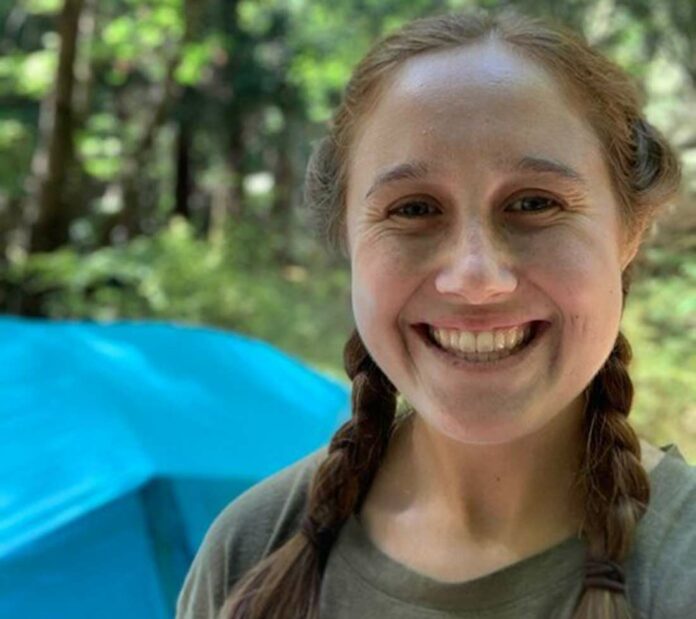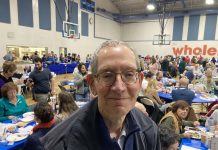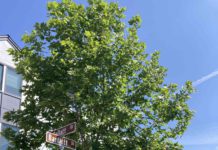What were your favorite school memories as a child? Mine included counting roly-polies in the grass at recess, having mud-sliding contests after school, and picking wildflowers with my friends. Some of my least favorite memories were having to play soccer on plastic turf on an already hot day (the field was at least 20 degrees hotter and smelled bad), then having to clean my shoes, socks, skin and bag from the turf pellets, and usually cleaning bleeding cuts from falling on plastic blades.
The Los Gatos Union School District is renovating outdoor spaces for three elementary schools: Louise Van Meter, Daves Avenue and Blossom Hill Elementary. The question on the table: install artificial turf or natural grass and plants? At the school board meeting on Nov. 18, district staff recommended using natural grass for playing fields, a mix of artificial turf, concrete, plants and other synthetic material for courtyard and play areas, and a statement declaring artificial turf safe to use for all future school uses. However, after the school board meeting it seems artificial turf may still be an option for the three playing fields. The final decision for courtyards is expected at the board’s Dec. 14 meeting and the play fields in the spring.
Installing plastic turf at elementary schools would be putting our children’s long-term health at risk and robbing them of a holistic education. If you’re worried about your children’s fate, consider:
1. Replacing fields and courtyards with concrete and plastic turf would eliminate already thinning natural spaces. Elementary schools should be places for children to learn and explore—inside the classroom and out. Do we want to teach our children about plastic pollution or about native plants, bugs, birds and rabbits? Studies around the world have found that experience with nature from a young age is beneficial for children’s immune systems and mental health. Though grass isn’t the same as an old growth forest, it does allow them to watch a robin hunt for a worm, see rabbits run across the grass, and a ladybug land on their hand.
2. Plastic gets hot. Twenty-plus degrees hotter than grass surfaces. On an 80-degree day, the plastic field will be 100 degrees, whereas trees and grass are natural coolers. Playing games in that kind of heat is unhealthy.
3. Plastic from turf runoff bioaccumulates in our soil and watershed. As it breaks down, plastic releases toxic compounds that compromise water quality and harm wildlife and human health.
4. Artificial turf cannot be recycled into another field and it most often ends up in the landfill every 10 years. The field’s shockpad can be reused once, but then it will go to the landfill too. Rather than playing in nature, children will be playing in future trash. If a person lives to be 100, that person can witness artificial turf from one school be sent to the landfill 10 times. If Van Meter, Daves and Blossom Hill’s fields were all switched to artificial turf that would mean 30 plastic fields going to the landfill in one person’s lifetime.
5. Turf blades have been found to contain fluorine, a major indicator of polyfluoroalkyl substances (PFAS). PFAS, along with similar hormone-disrupting chemicals found in turf pose a wealth of health risks: Attention Deficits, Early Puberty, Obesity, Asthma, reduced male fertility, and cancer (Diana Zuckerman, National Center for Health Research).
6. Plastic fields require close maintenance. It must be raked of all mold-causing leaves, cleaned with special chemical-based solutions, watered for both cooling and cleaning, and free of any overhanging trees to prevent tree or bird droppings. While nature is a self-cleaner, artificial products require artificial maintenance.
7. Maintenance also includes monitoring for toxic chemicals: metals, organic compounds, pesticides and PFAS. Why expose children to hazardous materials as they play? If there is any glimmer of doubt for children’s safety, I would hope our school district would take the safe route and put our children first.
8. Once plastic is installed, it is very difficult to turn back to grass or any natural landscape. Meaning, once you have the plastic, you are most likely stuck with the plastic.
Giulianna Pendleton grew up in and currently lives in Los Gatos. She is the Environmental Advocacy Assistant for Santa Clara Valley Audubon Society.










